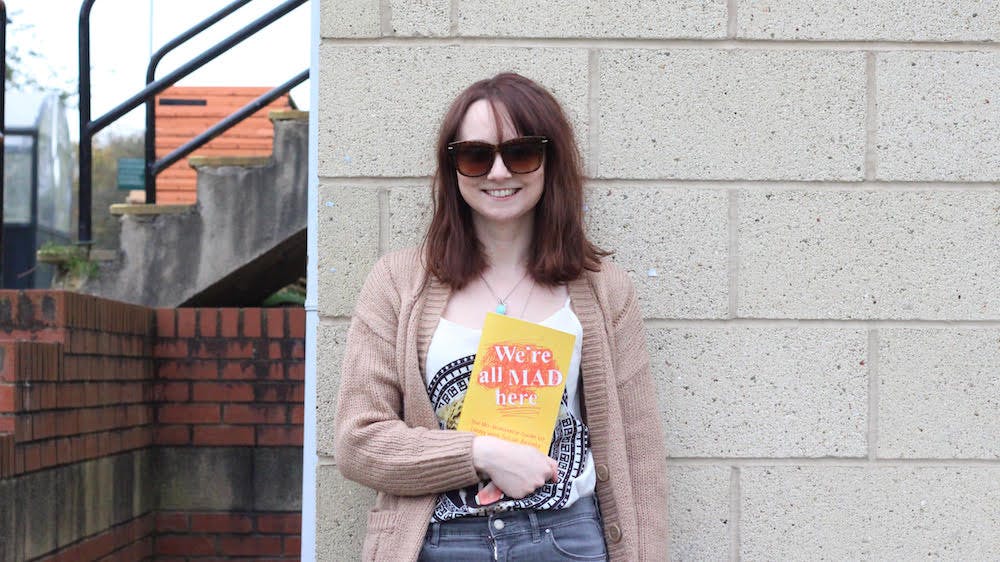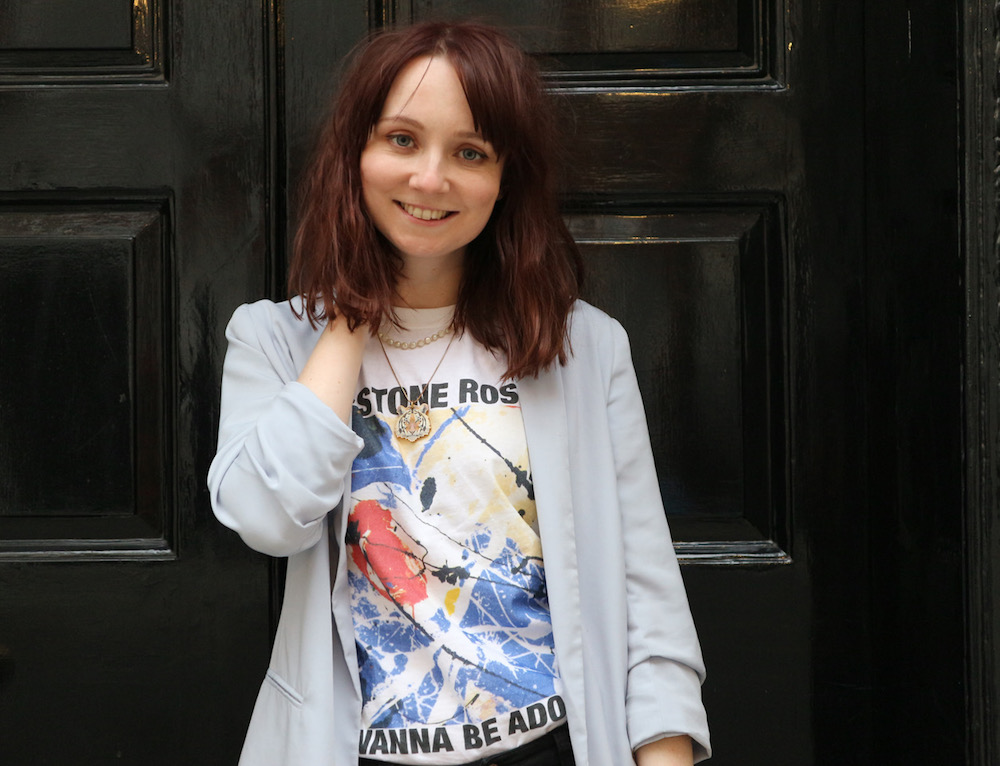I Thought I Was Losing My Mind and I Tried to Ignore It
updated on Feb 15, 2018

Award-winning mental health blogger and author Claire Eastham reveals her journey from social anxiety to mastering self-care

Claire Eastham
Running down a street in central London, tears streaming down my face, I knew I’d really done it this time; I’d ruined my life. The mental health condition that I’d been hiding for 10 years, had finally seeped through my subconscious.
During an interview earlier that morning, I experienced what I now know was a panic attack – the worst of my life. But at the time, I thought I was losing my mind.
I knew from the moment I entered the room that something was wrong, but as was my usual approach, I tried to ignore it. A warm sensation seemed to flow from my head and down my body, and by the time it reached my heart, everything exploded. I couldn’t breathe, I felt dizzy and I swear, my heart was pounding so hard you could see it beating through my shirt.
I can still remember the look on their faces when I rose suddenly from my seat and announced in a Jane Austinesque voice: “I have the norovirus and must leave at once!” Two things to bear in mind. Firstly, I’m from Bolton, so I’ve no idea where that posh voice came from. Secondly, I don’t think I’ve ever used the phrase “at once” since.
I think I was born with social anxiety. I was always a shy and sensitive child, the one who hid at parties and got upset over the smallest things
The next few days were a blur of terror, confusion and tears. I’ve never been so afraid or felt so out of control. It was a nervous breakdown, one that had been 10 years in the making.
Speaking honestly, I think I was born with social anxiety. I was always a shy and sensitive child, the who one hid at parties and also got upset over the smallest things.
By the time I was 14, clear signs of a problem began to emerge. I’d blush whenever spoken to, developed a tremor in my hands, and froze if I were asked to share my work at school. I lived each lesson on edge. What if a teacher spoke to me? What if I couldn’t answer? During some lessons, I even feigned sickness and hid in the toilets.
I hoped it was just a phase, something that I would grow out of.

Claire with her parents
I didn’t let it stop me from doing well at university, making friends and having a social life. I had strategies to control it – alcohol was one and ignorance was the other. I suppose you could call me high-functioning.
In 2011, I left Bolton to move to London, working for what I thought was my “dream company”. It was a fresh start; surely things would be better here? I felt like a movie star, strutting round London with a Starbucks coffee with all the other commuters.
However, nine months later, I gradually noticed a change in my mood. The office that I worked in was filled with loud, dominant characters who were larger than life. I became convinced that they didn’t like me and avoided most colleagues at all costs. Even though we were on the 10th floor, I took the stairs rather than use the lift – good for exercise, bad for sweat! I didn’t use the staff kitchen, and I even started using the toilets on another floor to limit the risk of interaction.
It took about one year, but I built the foundations and still benefit from them today
I was tired constantly, but couldn’t sleep. I felt emotional and, once again, on edge. Something was very wrong, and I didn’t know what to do.
On the day of my nervous breakdown, I’d finally reached a crisis point; I couldn’t hide my condition anymore, whatever it was.
I finally opened up to my parents, who were incredible. I went back to Bolton and visited the doctor, who diagnosed me with acute social anxiety and panic attacks within two minutes. I burst into tears of relief; I couldn’t believe that it had a name. I wasn’t a freak. She prescribed medication and suggested therapy.
So, what happened next? Well, it was really, really, really shit for a while. You can’t heal a broken leg in a day, and the brain is exactly the same – it needs time.

Claire on her wedding day
I was signed off work for a month, which, at the time, devastated me, but in hindsight, it was the best thing that happened. It gave me time to get to grips with my anxiety and accept I wasn’t well.
What helped me the most was something I didn’t expect, a form of therapy called “exposure”. Exposure therapy encourages people who suffer with panic to expose themselves in very small doses to a situation that makes them feel uncomfortable. To clarify, this doesn’t mean that if you’re afraid of heights you should jump out of a plane. Instead, make a list of 20 baby-steps that will ultimately lead you to your goal.
For example, I struggled in meetings, so my first step was to sit in my living room and imagine that it was a meeting. This exercise triggered a panic attack, but rather than running or trying to ignore it, I accepted what was happening. I accepted that although I felt very distressed, the panic couldn’t physically hurt me, or make me do anything dangerous.
I also began to take better care of myself. Nothing fancy, just walking more and cutting down on coffee.
It took about a year, but I built the foundations and still benefit from them today.

Claire signing her books
As I grew stronger, I also started writing my now award-winning blog “We’re All Mad Here”. During my recovery, I noticed that the majority of material available either consisted of medical jargon I couldn’t understand, or was littered with negative and bleak content. I wanted to write something that would empower others and break down the stigma that surrounds mental health. This is something that I intend to continue.
As I write this today, I now have a bestselling book, I’ve spoken at numerous events, such as Stylist Live, and was recently nominated for a Mind Media Award.
Going forward, my intentions remain the same. Mental illness is hard, but it isn’t a death sentence and you can get better. You’re not alone.
Claire masks the overwhelming anxiety she feels in public. She hopes a new start will help, but quickly finds herself becoming socially anxious and withdrawing. A vivid anxiety attack is the crisis that leads to Claire asking for help. Exposure therapy allows her to challenge the anxiety in manageable steps. As she learns to take care of herself, she feels transformed and sees success in both her speaking and writing.

Join 100,000+ subscribers
Stay in the loop with everything Happiful
